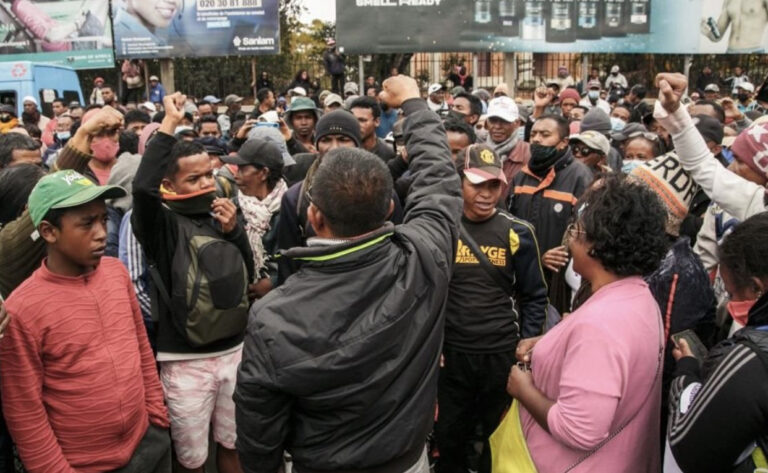The government of Madagascar has banned public protests as tensions rise in the run-up to the presidential election in November, according to a correspondent in Antananarivo for Radio France International (RFI). Cécile Manorohanta, Madagascar’s minister of interior, made the announcement on Friday, March 31.
Protests would be prohibited in public spaces, according to Manorohanta, but citizens could still hold them in enclosed areas.

“This measure applies to all political parties and to all parliamentarians, except for members of the executive, who need to meet and listen to the population,” Manorohanta said.
Andry Rajoelina, the current president, is expected to run for re-election in November. He has been president since his inauguration in 2019, after receiving 55% of the vote in the 2018 election. Tanora malaGasy Vonona (Young Malagasies Determined), Rajoelina’s political party, currently holds a majority in Madagascar’s National Assembly.
Malagasy people were outraged by the ban on public organizing, which they saw as an infringement on their rights.
Former minister and opposition Malagasy Miara-Miainga leader Hajo Andrianainarivelo stated that the ban indicates Madagascar is heading in a dangerous direction.
“It is a denial of democracy. We strongly condemn this statement and this decision, especially on the eve of a crucial election. The Constitution is no longer respected,” Andrianainarivelo said in the RFI report. “How do you want to have confidence in future deadlines if the government is doing everything now to prevent the voice of political parties and civil society from being heard? What interests this regime is to stay in place. Nothing stops them. And today we are moving towards dictatorship. It is extremely serious.”

